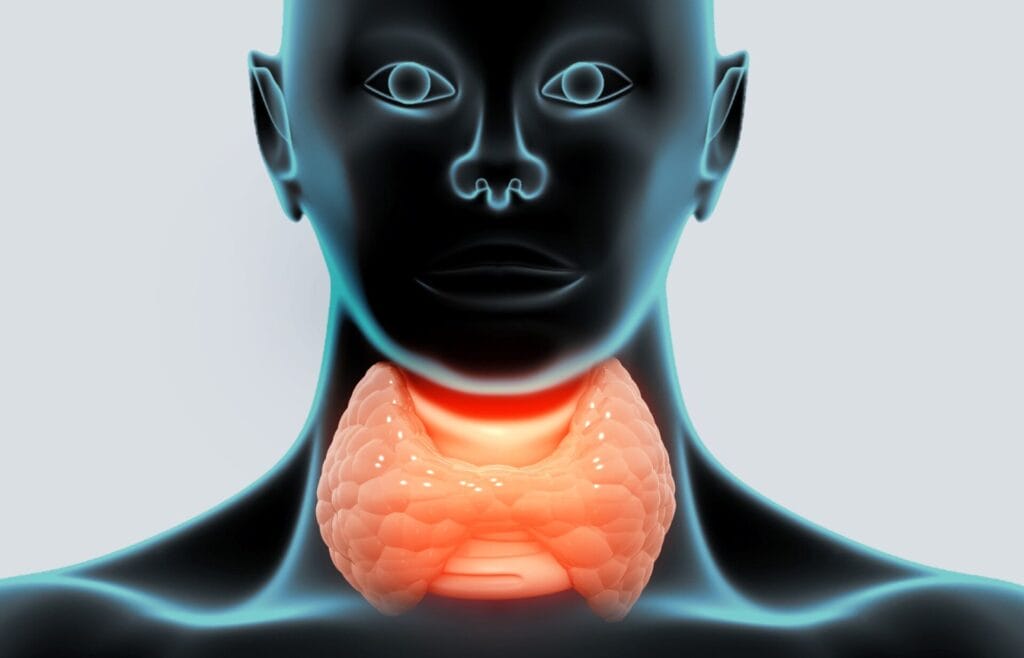
Thyroid dysfunction is a common yet often overlooked condition affecting millions of people worldwide. The thyroid gland plays a crucial role in regulating metabolism, energy levels, and overall bodily functions. When it malfunctions, it can lead to a range of symptoms that may be mistaken for other health issues. Early diagnosis is essential to prevent complications and ensure effective treatment.
This article explores the tests, symptoms and the next steps involved when diagnosing thyroid dysfunction.
Understanding Thyroid Dysfunction
The thyroid gland produces hormones that influence nearly every organ in the body. When it underproduces (hypothyroidism) or overproduces (hyperthyroidism) these hormones, various systems can be disrupted. Symptoms may develop gradually, making them easy to dismiss.
For those experiencing unexplained fatigue, weight changes, or mood swings, consulting a specialist who can evaluate thyroid dysfunction is recommended.
Common Symptoms of Thyroid Dysfunction
Recognizing the signs of thyroid dysfunction is the first step toward diagnosis. Symptoms vary depending on whether the condition is hypo- or hyperthyroidism.
Hypothyroidism Symptoms
Hypothyroidism develops when the thyroid gland fails to produce sufficient hormones, primarily thyroxine (T4) and triiodothyronine (T3), which regulate metabolism, energy, and vital bodily functions. This deficiency slows down bodily processes, leading to a range of symptoms. Persistent fatigue and sluggishness are among the most common complaints, as low hormone levels reduce energy production. Unexplained weight gain can also occur due to a slowed metabolic rate, while dry skin and hair loss result from impaired cell regeneration. Increased sensitivity to cold stems from poor circulation and reduced heat generation.
Additionally, many individuals experience mood disturbances, including depression, as thyroid hormones influence neurotransmitter function. Muscle weakness and stiffness may also develop due to reduced protein synthesis, while constipation arises from slowed digestive motility. If left untreated, severe hypothyroidism can contribute to elevated cholesterol, heart complications, and cognitive decline.
Because of these, early diagnosis through thyroid blood tests (TSH, Free T4) and prompt treatment with hormone replacement therapy can effectively restore normal function and alleviate symptoms.
Hyperthyroidism Symptoms
Hyperthyroidism occurs when the thyroid gland overproduces thyroid hormones (T3 and T4), accelerating the body’s metabolic processes. This hormonal excess triggers a range of disruptive symptoms. A rapid or irregular heartbeat (palpitations) is common, as thyroid hormones stimulate the cardiovascular system. Unintentional weight loss also occurs despite normal or increased appetite, as the body burns calories excessively.
Furthermore, anxiety, nervousness, and irritability can result from heightened neurological activity, while fine tremors in the hands may develop due to overstimulated nerves. Excessive sweating and heat intolerance also arise from an overactive metabolism.
On the other hand, additional symptoms include thinning hair, as accelerated growth cycles weaken hair follicles, and frequent bowel movements due to faster digestion. Many patients struggle with insomnia or restless sleep, as high thyroid hormone levels disrupt the sleep-wake cycle. In severe cases, untreated hyperthyroidism can lead to heart rate complications, bone loss, or thyroid storm—a life-threatening condition.
As such, diagnosis typically involves blood tests (TSH, Free T4, T3) and imaging, with treatments including antithyroid medications, radioactive iodine, or thyroid surgery to restore hormonal balance.
Diagnostic Tests for Thyroid Dysfunction

Accurate diagnosis of thyroid issues requires a combination of clinical evaluation and laboratory testing. Health care providers typically begin with a thorough medical history and physical exam before ordering specific thyroid function tests. Some diagnostic tests for thyroid dysfunction include:
- Thyroid-Stimulating Hormone (TSH) Test: This measures pituitary gland signals to the thyroid. High TSH suggests hypothyroidism, while low TSH may indicate hyperthyroidism.
- Free T4 and Free T3 Tests: These assess active thyroid hormone levels in the blood.
- Thyroid Antibody Tests: These can help diagnose autoimmune thyroid disorders like Hashimoto’s thyroiditis or Graves’ disease.
- Ultrasound: This can help detect nodules, inflammation, or enlargement of the thyroid gland.
- Radioactive Iodine Uptake Test: This measures how much iodine the thyroid absorbs, aiding in hyperthyroidism diagnosis.
- Thyroid Scan: This provides visual information about gland activity and detects abnormalities.
Understanding these tests allows patients to diagnose thyroid dysfunction more effectively.
Next Steps After Diagnosis
Once thyroid dysfunction is confirmed, appropriate treatment can begin. Management of thyroid disease depends on the underlying cause and severity of the condition. Below are the next steps to consider after diagnosis:
Treatment for Hypothyroidism
Hypothyroidism is most commonly treated with synthetic thyroid hormone replacement, typically levothyroxine, which mimics the body’s natural T4 hormone. This medication restores hormone levels, alleviating symptoms like fatigue, weight gain, and depression. However, dosage is personalized based on factors such as age, weight, and severity of the condition.
Patients usually take it daily on an empty stomach for optimal absorption. Regular blood tests (TSH and Free T4) are also essential to ensure proper dosage, as requirements may change over time due to aging, pregnancy, or other medications. If left untreated, hypothyroidism can lead to complications like heart disease, infertility, or myxedema (severe hormone deficiency).
Lastly, adherence to prescribed treatment and routine medical follow-ups help maintain stable thyroid function and overall well-being.
Treatment for Hyperthyroidism
Hyperthyroidism treatment depends on the underlying cause and severity. Antithyroid drugs, such as methimazole or propylthiouracil (PTU), can reduce hormone production and are often the first-line therapy, particularly for Graves’ disease. Radioactive iodine therapy is another common approach, where a controlled dose destroys overactive thyroid cells, gradually restoring normal function. In severe or unresponsive cases, surgical removal of part or all of the thyroid (thyroidectomy) may be necessary. Beta-blockers like propranolol are also frequently prescribed to manage symptoms such as rapid heartbeat, tremors, and anxiety while long-term treatments take effect.
Furthermore, since some treatments may eventually cause hypothyroidism, lifelong hormone replacement therapy might be required. Close monitoring also ensures optimal thyroid levels and minimizes complications.
Lifestyle and Follow-Up
Effective thyroid management requires consistent medical follow-ups to track hormone levels and adjust medications as needed. Patients should attend scheduled blood tests and doctor visits, especially after starting treatment or experiencing symptom changes. A balanced diet rich in selenium, zinc, and vitamin D supports thyroid function, while excessive iodine (found in seaweed and some supplements) should be avoided, as it can worsen dysfunction.
Techniques for stress reduction, such as yoga or meditation, can help mitigate symptoms since stress can disrupt hormonal balance. Regular exercise can also improve metabolism and energy levels, but those with hyperthyroidism should avoid overexertion due to heart strain. Lastly, smoking cessation is crucial, as tobacco use exacerbates thyroid disorders.
By combining medical treatment with healthy lifestyle habits, patients can achieve better thyroid health and overall wellness.
Final Thoughts
Thyroid dysfunction can significantly impact quality of life if left untreated. By recognizing symptoms early and undergoing proper diagnostic testing, patients can ensure timely intervention. With accurate diagnosis and personalized treatment, individuals can effectively manage their condition and maintain optimal health.
The Editorial Team at Healthcare Business Today is made up of experienced healthcare writers and editors, led by managing editor Daniel Casciato, who has over 25 years of experience in healthcare journalism. Since 1998, our team has delivered trusted, high-quality health and wellness content across numerous platforms.
Disclaimer: The content on this site is for general informational purposes only and is not intended as medical, legal, or financial advice. No content published here should be construed as a substitute for professional advice, diagnosis, or treatment. Always consult with a qualified healthcare or legal professional regarding your specific needs.
See our full disclaimer for more details.







